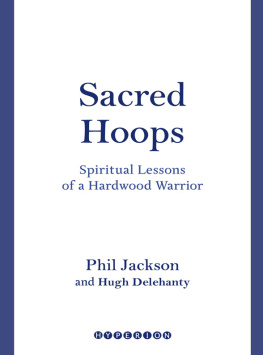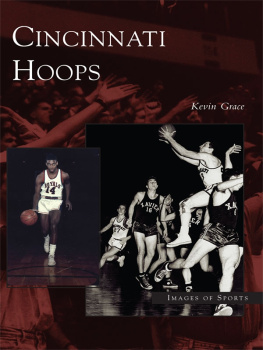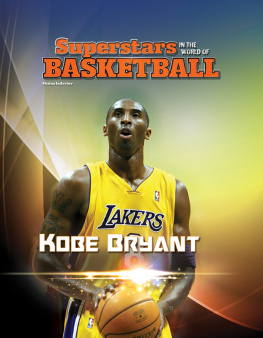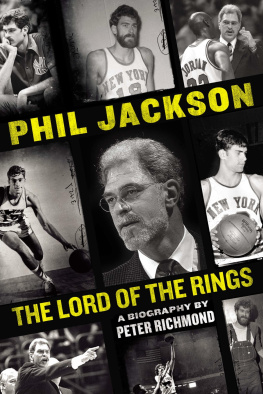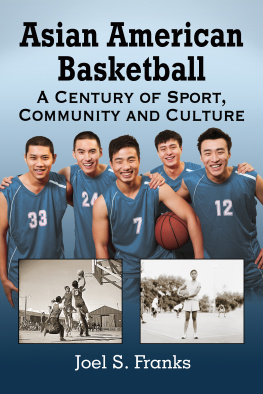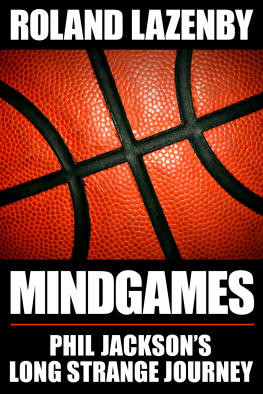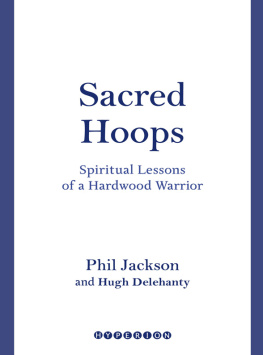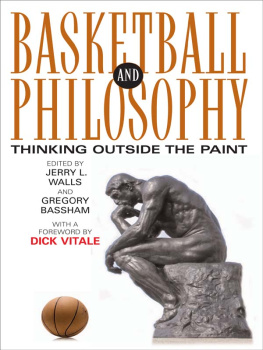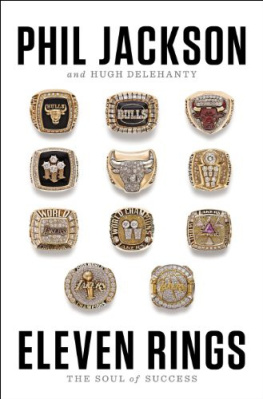
Grateful acknowledgment is made to the following publishers and authors for permission to reprint copyrighted material.
Charles E. Tuttle Publishing Co., Inc., for excerpt from Zen Flesh, Zen Bones, copyright1961 by Paul Reps. (Epigraph page)
For the raindrop, joy is in entering the river, by Ghalib; translation1988 by Jane Hirshfield. Used by permission of the author. (p. 23)
Regents of the University of California and the University of California Press for excerpt from Teachings of Don Juan: A Yaqui Way of Knowledge, copyright1968 by Carlos Castaneda. (p. 45)
Weatherhill, Inc., for excerpts from Zen Mind, Beginners Mind, copyright 1910 by Shunryu Suzuki. (pp. 50, 118, 194)
Humanics Limited for excerpt from The Tao of Leadership by John Heider, copyright1985 by Humanics Limited, Atlanta, Georgia. (p. 68)
Simon & Schuster Inc., for excerpts from The Soul Would Have No Rainbow If The Eyes Had No Tears, copyright1994 by Guy A. Zona (pp. 77, 95); and The Jordan Rules, copyright1992 by Sam Smith. (pp. 143, 145)
The University of Nebraska Press for excerpts from Black Elk Speaks, copyright1932 as told through John G. Neihardt. (p. 98)
Bear & Co., Inc., for excerpt reprinted from Medicine Cards by Jamie Sams and David Carson, copyright1988 by Bear & Co., Inc., P.O. Box 2860, Santa Fe, NM 81504. (p. 98)
Center Publications for except from The Way of Everyday Life: Zen Master Dogens Genjokoan with Commentary by Hakuyu Taizan Maezumi, copyright1978 by Center Publications. (p. 99)
Random House, Inc., for excerpts from Talk Before Sleep, copyright 1994 by Elizabeth Berg (p. 109); and Zen in the Art of Archery by Eugen Herrigel, copyright1953 by Pantheon Books, renewed in 1981 by Random House, Inc. (p. 129)
The University of Oklahoma Press for excerpt from The Sacred Pipe, Black Elks Account of the Seven Rites of the Oglala Sioux, recorded & edited by Joseph Epes Brown. Copyright1953 by the University of Oklahoma Press, Norman, Publishing Division of the University. (p. 109)
HarperCollins Publishers for poem by Wu-men from The Enlightened Heart by Stephen Mitchell, copyright 1989 by Stephen Mitchell. (p. 113); quote from The Essential Tao, translated and presented by Thomas Cleary, copyright 1991 by Thomas Cleary (p. 147); and excerpt from Thoughts Without a Thinker by Mark Epstein, M.D., copyright 1995 by Mark Epstein, M.D. (pp. 18586). Reprinted by permission of HarperCollins Publishers, Inc.
William Morrow & Company, Inc., for excerpt from Zen and the Art of Motorcycle Maintenance, copyright 1974 by Robert M. Pirsig. By permission of William Morrow & Company, Inc. (p. 116)
Shambhala Publications, Inc., for excerpts from Shambhala, The Sacred Path of the Warrior, by Chogyam Trungpa, copyright 1988 (p. 136); and Start Where You Are by Pema Chodron, copyright 1994 (p. 154). Reprinted by arrangement with Shambhala Publications, Inc., 300 Massachusetts Avenue, Boston, MA 02115.
Reprinted by permission of Harvard Business Review. An excerpt from Parables of Leadership, by W. Chan Kim and Renee A. Mauborgne, July/August 1992. Copyright 1992 by the President and Fellows of Harvard College; all rights reserved. (pp. 14951)
Jossey-Bass Publishers for excerpts from Leading Change by James OToole, copyright 1995 by Jossey-Bass Publishers, Inc. (pp. 15354)
Lillian Pietri for an excerpt from her letter to Phil Jackson. Reprinted by permission of the author. (p. 200)
For June and Barbara, without whose love and selflessness this book could never have been written
In memory of Eddie Mast, a teammate and a soulmate
The bull is the eternal principle of life, truth in action.
KAKUAN (12TH CENT.),
In Nyogen Senzaki and Paul Reps,
Zen Flesh, Zen Bones
It is not the same to talk of bulls as to be in the bullring.
SPANISH PROVERB
CONTENTS
This past December, back at the helm of the Lakers on a road trip to Orlando, Florida, I was sitting in the lobby of the Marriott Hotel waiting for our party to assemble to go out for dinner. A man walked through the lobby with a saxophone case in hand. I asked him if that sax was a tenor or a baritone. A baritone, he said, before heading to the bar.
One minute later, he poked his head around the column I was sitting behind and asked if I wasnt so and so. I said yes. He proceeded to tell me that he was a professor at the local college and played jazz in a group two times a week at the hotel. But the real reason he wanted to speak to me was that he wanted to thank me for writing Sacred Hoops. He professed that he wasnt a sports fan, but had been using my book for his music classes to teach his students about teamwork and harmony. I felt very proud. The notion that theres a way to motivate people through a variety of messages has resonated with people in all walks of life. It is a pleasure to have a chance to update you with this new edition, or to welcome you to your first experience reading this book.
In the first edition of this book, I told readers about the CEO of the Chicago Bulls and the Chicago White Sox, who argued with me that people are motivated by two prime forces: greed and fear. I countered that they are motivated by their community and by love. I continued to use the principles espoused in the book through the years with the Bulls and the Lakers. As a result of our connectedness and mindfulness, we produced some wonderful results.
The most remarkable story has to do with the Lakers most recent championship in 2003. During a very intense series in the Conference Finals against our in-state rival, the Sacramento Kings, we were down three games to two, but forced a seventh game by winning at home. Still, we faced a difficult challenge: Game 7 at their place, Arco Arena, the loudest arena in basketball. We had desperately wanted to secure homecourt advantage for this exact reason. We didnt get it, and now had to pay the price.
The game was on Sunday afternoon. A few hours earlier, the team met for brunch to go over game plans and video replays of the previous game. Usually the players straggle in before the appointed time and eat their pre-game meal, but are somewhat subdued due to the relatively early hour. On this morning, however, the players were anxious to begin our meditation. We went through it with a serenity that exuded a sense of peace, and we went on to play the game with tremendous focus. Ultimately, we prevailed in overtime because of that focus and mental strength. I was as proud as Ive ever been of my players, convinced that what we were teaching extended far beyond basketball, by instilling the techniques and discipline that would enhance the rest of their lives.
The subsequent year, we sustained some injuries, operations, and a changing of the guard that began a downward spiral that led to the teams breakupand retirement. We had to revamp the team my final year, bringing in some older players. Unfortunately, for them and the franchise, they stepped into a family that was bickering, and didnt know which side to join. This final year tested my philosophy like never before. We made it to the Finals, but lacked the kind of unity that had defined the Laker squads who won three straight titles.
The season was marred by injuries and by Kobe Bryants trial proceedings, which seemed to keep us in the headlines. Kobe was a free agent and under great duress, yet managed to perform admirably. Personally, he and I struggled to get along. I wanted him to stop being the lone ranger and come into the group, as a leader, but he had his own problems to deal with. We stumbled to the All-Star break when the Lakers announced that my contract negotiations would be tabled until after the season. That gave me the freedom to talk to Kobe about strictly focusing on the current season.
Next page
